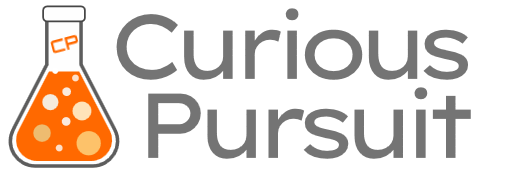Stephen Covey’s “The 7 Habits of Highly Effective People” isn’t simply a self-help book; it’s a full-bodied philosophy for living a principle-centered, character-driven life. Each habit builds upon the previous one, creating a framework for personal and professional success. It claims to be the distillation of anciently proven ideas on how to find success worth finding. It may be that but it’s also a modern way to frame both a more reliably product life.
Effort – Benefit Analysis of the 7 Habits Book …
Scope: Personal, Family, Friendships, Organization
Level of Effort: Daily/Weekly/Monthly Habits
Areas of Effect: Personal Effectiveness, Relationships, Influence, Fitness
Download Free 7 Habits Resources HereAs is stated in the title of the book, it contains 7 habits that promise a higher level of living and effectiveness. Those habits are …
Habit 1: Be Proactive
Instead of reacting passively to circumstances, proactive individuals take initiative and responsibility. They are “Circle of Influence” masters, focusing on what they can control instead of dwelling on the “Circle of Concern” where unhelpful worry abounds.
For example: A proactive person facing a job loss doesn’t wallow in despair. They leverage their network, update their skills, and actively seek new opportunities, shaping their own career path.
Habit 2: Begin with the End in Mind
This habit emphasizes crafting a personal vision statement that guides your decisions and actions. It’s about defining your desired outcomes and living your life with purpose, clarity, and direction.
For example: Before building a house, you need a blueprint. Similarly, outlining your ideal future – your relationships, career, contributions – provides a roadmap for navigating present choices.
Habit 3: Put First Things First
Effective prioritization is key to this habit. Covey introduces the Time Management Matrix, urging readers to focus on urgent and important tasks, delegate or eliminate the less urgent, and avoid altogether the unimportant yet urgent time-wasters.
For example: A student facing upcoming exams prioritizes studying over social media binges, allocates dedicated time for each subject, and schedules breaks to avoid burnout.
Habit 4: Think Win-Win
Moving beyond the competitive mindset, Habit 4 advocates for mutually beneficial solutions. It’s about seeking cooperation, fairness, and integrity in all interactions, fostering trust and long-term relationships.
For example: Instead of a zero-sum game, both parties approach the table with a win-win mentality, seeking common ground and a solution that benefits everyone involved.
Habit 5: Seek First to Understand, Then to Be Understood
Empathic listening is the cornerstone of this habit. It’s about prioritizing understanding the other person’s perspective before trying to communicate your own. This involves active listening, open-mindedness, and suspending judgment.
For example: Instead of immediately defending your position, practicing Habit 5 involves listening attentively to the other person’s feelings and concerns, seeking to truly understand their viewpoint before presenting your own.
Habit 6: Synergize
The whole is greater than the sum of its parts, as Habit 6 emphasizes. It’s about valuing teamwork, collaboration, and creative problem-solving. By leveraging diversity and individual strengths, synergistic teams achieve remarkable outcomes.
For example: Each member brings their unique skills and perspectives to the table, building upon each other’s ideas and fostering an environment of open communication and trust.
Habit 7: Sharpen the Saw
This final habit is about continuous renewal and self-improvement. It encompasses physical, mental, emotional, and spiritual well-being. By investing in ourselves, we maintain the stamina and clarity needed to fulfill the other habits.
For example: Just as a gardener regularly tends to their tools, Habit 7 emphasizes activities like exercise, meditation, learning new skills, and spending time in nature to keep our inner “tools” sharp and effective.
Remember, “The 7 Habits of Highly Effective People” is a journey, not a destination. Embrace the continuous learning and growth encouraged by these principles, and you’ll be well on your way to living a more fulfilling and impactful life.
Implementing the Ideas
Because the habits have a complexity to them and each builds on the previous, it’s fair to give yourself time and space to implement these ideas. Also, beware the temptation to be too rigid in your thinking about what success looks like in enacting these ideas. Perfection doesn’t exist in any area of life and certainly not in something like this. It should be about progress and growth and the opportunity to be a bit better each week/month/year.
We have created a free implementation package with tools and resources at our 7 Habits of Highly Effective People Implementation page.
As a quick view into those tools and a potential implementation path, here you go …
- Understand the overall Public/Private Victory model with the implication that before we can find influence and success in “public” spaces we must first gain victory over destructive elements of our self.
- Establish your core life objectives by considering what will be of greatest value to you at the end of your life. The provided “funeral exercise” is a helpful tool to do just that.
- Evaluate your current locus of control with our “centered-ness” tool.
- Understand where you are currently spending your time and how effective that spend likely is in accomplishing your most important goals.
- Create role-based goals to align your efforts with the most essential elements of your chosen identity.
- Think through where and how you might best spend your time in building relationships that mean the most using the Emotional Bank Account Deposit Planner.
- Use the “Third Way” worksheet to both better understand others’ perspectives and shape your options to find the best way to serve all in challenging circumstances.
- Consider how you can spend deliberate time to better prepare yourself for higher and higher effectiveness with the Sharpen the Saw worksheet.
External Resources
BUY the 7 Habits of Highly Effective People book on Amazon
Reddit Thread: Get Disciplined
Hubspot Summary and Additional Tools
FranklinCovey 7 Habits Portal
Our Favorite Youtube Summary
Habit 1 from the Author Stephen Covey
